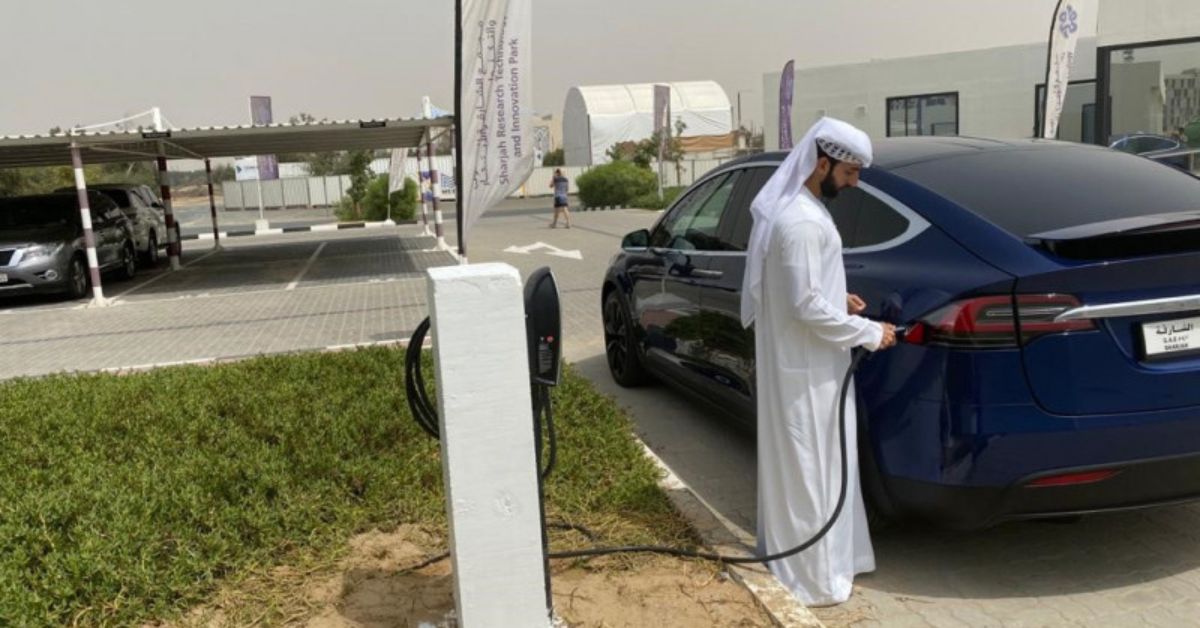DUBAI, UAE — Not long ago, self-driving vehicles, robotic deliveries, and electric cars were seen more in Hollywood films and the realm of childhood imagination than in real-world STEM advancements. However, times have changed, and in the world of technology, change occurs rapidly.
In recent years, phenomenal advancements in science, technology, and government aspirations have not only brought us closer to autonomous travel and e-mobility but have also ignited the engines of a journey that could fundamentally alter our modes of transportation.
Autonomous travel
Admittedly, autonomous mobility has experienced a few shaky years, with market challenges arising from factors like COVID-19, slow implementation of related technologies, and semiconductor shortages.
However, optimistic financial forecasts and various predictions envision a global market value soaring into the trillions of dollars by the next decade’s onset. Remarkably, autonomous vehicles (AVs) are already on the road, to the extent that key industry players anticipate the commercialization of the service by 2024, with forecasts predicting near-to-full automation (level 5) by 2035, according to Arthur D. Little (ADL).
Globally, the maturity of autonomous mobility is still in its early stages, as indicated by a recent ADL study. Yet, while regions like the US, EU, China, and Singapore are leading in AV market readiness, GCC countries are positioning themselves as strong contenders. If there’s one thing the Middle East excels at, it’s rising to a challenge.
In just a few decades, the GCC states have engineered an unprecedented economic transformation, creating infrastructure and services that are not merely world-class but also pioneering. Now, with a variety of AV use cases starting to emerge, there’s a high likelihood that autonomous mobility will follow a similar trajectory of innovation and leadership in the GCC.
The UAE has been a leader in the region’s autonomous mobility drive for several years. The Dubai Autonomous Transportation Strategy aims to convert 25 percent of the city’s total transportation to autonomous mode by 2030. Already, Dubai has hosted three editions of the Dubai World Challenge for Self-Driving Transport, and the emirate plans to launch a robo-taxi cruise vehicle in December this year, followed by an aerial taxi in early 2026.
Saudi Arabia is also making significant strides in this arena, positioning itself to play a leading role globally. As part of its national aspirations for the land transport sector, strategic initiatives are being considered to advance beyond other countries. Future Saudi cities have been designed with autonomy in mind, incorporating volocopters, robo-taxis, and autonomous pods.
E-mobility
In parallel with autonomous vehicles, electrification is a critical component in the evolution of mobility. In the context of global net-zero commitments and the fight against climate change, e-mobility is becoming a priority on government and corporate agendas worldwide.
In this context, Arthur D. Little (ADL) conducted the Global Electric Mobility Readiness Index 2023 (GEMRIX), which assesses the e-mobility readiness of 35 countries and their progress. According to ADL’s global study, the UAE and KSA rank 7th and 23rd, respectively, in a list that includes most G20 nations, such as the USA, China, Norway, and Australia. The GEMRIX study also identifies the UAE and KSA as major emerging markets for electric vehicles (EVs).
ADL’s analysis identifies several factors that can influence the pace of EV adoption. In any given country, these factors include the start date of the mobility strategy, average citizen income, government incentives, and the development of charging infrastructure.
In higher-income nations, a robust charging network and financial incentives are crucial, while the environmental benefits of EVs, especially when paired with renewable electricity, further influence consumer choices. In contrast, lower-income countries may initially require subsidies to make EVs more affordable.
Regarding cost, EVs are expected to become increasingly cost-competitive as technology advances, driving their adoption. The inclusion of MENA and Southeast Asian countries in ADL’s Global Electric Mobility Readiness Index 2023 signifies a shift towards EVs for economic diversification. Governments in these regions are promoting sustainable transport, boosting public confidence in EV technology and its environmental benefits.
The race Is on
Wherever a country stands in its journey towards autonomous mobility and electrification, one thing is certain: the global race is underway. Electric and self-driving vehicles are no longer just futuristic concepts; they have evolved beyond theoretical discussions to become a tangible reality on roads and highways around the world.
With the necessary technology and vision already established, GCC countries are now gaining momentum. They are developing the partnerships, infrastructure, and regulations needed for full-scale EV and AV commercialization. This progress is set to shape the future of transportation for generations to come.
Achraf Joumaa is Principal at Arthur D. Little Middle East.
The opinions expressed are those of the authors and may not reflect the editorial policy or an official position held by TRENDS.








